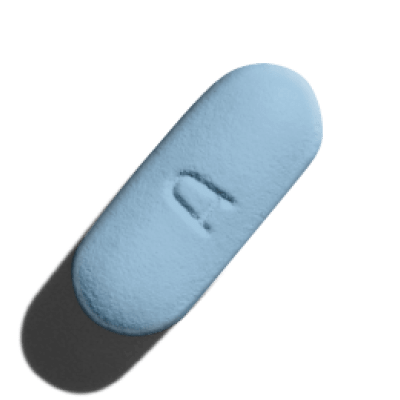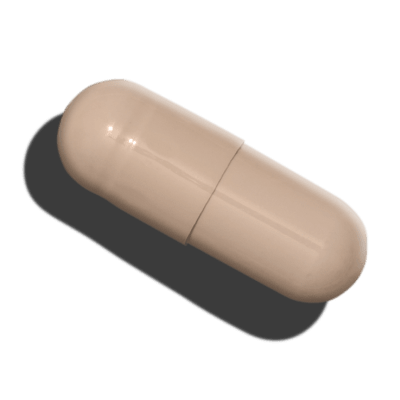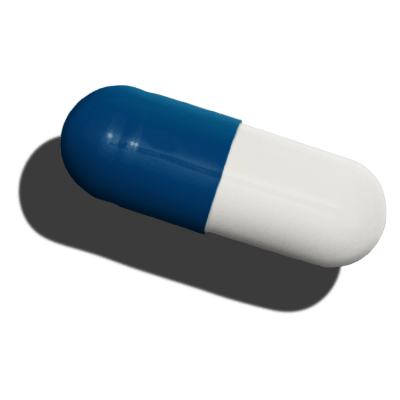Content
Seeking support for your mental health?
Ibuprofen for Depression: Does It Work?

It’s rare to hear medical experts talk about simple depression cures. First, depression is not currently a “curable condition” but can only be managed and treated. Second, cures are rarely simple — if they were, we wouldn’t even have depressive disorders anymore. So when you hear someone discuss the benefits of ibuprofen for depression, you’re right to be skeptical.
Depression isn’t something you can cure with over-the-counter medication. But research has shown some interesting ways in which ibuprofen and depressive disorders interact — including a few potential benefits.
If you’re expecting to leave depression in the past with a daily Advil, we can’t promise (or even suggest) that’s possible. However, some compelling studies have shown that Advil may play a role in managing mental health issues in certain circumstances.
Want to understand the facts? We can help, but there are a few things you need to know first.
To explain what’s going on, we’ll need to delve into some basics about ibuprofen. Let’s start there.
Content
What Ibuprofen Does When You Take It
Ibuprofen is an NSAID, which is an abbreviation for non-steroidal anti-inflammatory drug. It’s a medication you can get over the counter in many cases. (You likely already know several brand-name versions of this medication, Advil being one of the most common).
NSAIDs (specifically, ibuprofen) are used to treat mild versions of pain. In prescription-strength form, however, ibuprofen medications are used to treat the following conditions and symptoms:
Serious aches and pains
Osteoarthritis
Fever
Rheumatoid disorders
Inflammatory diseases
Ibuprofen essentially works by inhibiting prostaglandin precursors — a bunch of fancy words for explaining that it tells your cells and systems not to overreact to certain stimuli.
Depending on the context, ibuprofen may reduce inflammatory responses (as is certain autoimmune issues) or lesson the neurological response to discomfort and pain.
It can even relax muscle tension and soreness, which is why you might take it for a sprained ankle, a tension headache or a too-rough day at the gym.
So what about mental discomfort, like what you’d experience from major depression? Can ibuprofen treat that? Potentially.
Ibuprofen is hardly a first-line expert recommendation for the treatment of depression. But it’s worth understanding why it may one day be part of a depression management plan for some individuals.
It all has to do with the interplay between your body’s inflammatory response and your mental health, which is something research has been exploring for a few years now. In fact, more than 800 studies have been conducted on rats and mice to determine the answer to this question.
A 2022 systematic review looked at NSAIDs for their antidepressant benefits in mice. It speculated on many topics, but it did find evidence of the antidepressant value potential of NSAIDs in the 36 studies it reviewed.
The review also mentioned that these trials (and their sometimes-promising results) only suggest that more human clinical trials (and more strictly controlled studies in rats) are necessary.
Many of the included studies varied in their controls — some used exclusively male mice, and 17 different NSAIDs were used across all the available research.
A 2020 study looked specifically at the effects of ibuprofen on rat mental health and found that the medication prevented or protected the rats from chronic stress-induced depression. They couldn’t define or explain the mechanism through which this happened, so further clinical trials are needed.
Human studies have been conducted as well, by the way.
One 2013 study found that in patients with osteoarthritis (an inflammatory disease), NSAIDs could reduce symptoms of depression in adults. Nearly 1,500 participants were examined for their depression scores, and those who used anti-inflammatory medications lowered their scores.
In 2021, another study found that ibuprofen lowered the likelihood of PPD (postpartum depression) in women who were at a higher risk for developing the disorder at three weeks postpartum.
Now, you may not have osteoarthritis, and you may not be a new mom, but these two fairly extreme situations are context clues about the potential benefits of NSAIDs for depressive disorder in adults.
There’s one more extreme situation we should mention: suicidal risk.
A 2019 review looked at the associations between NSAID use and suicidal ideation versus other pain medications like acetaminophen. While the results were complicated, Aspirin and generic ibuprofen both showed correlations with reduced suicide risk, according to available data. While it was far from a conducted, controlled study, it’s yet another small piece of evidence on a growing pile.
The Risks of Ibuprofen Use
Ibuprofen may indeed offer a safe alternative or complementary treatment for depression in certain circumstances. So why not take ibuprofen daily, whenever you’re feeling down or numb?
Because that would be very, very bad for your health — and we’re not even talking about the risks of drug interactions.
Ibuprofen is known to cause a risk of some pretty severe side effects, especially when taken in large volumes. Renal failure (kidney issues) and gastrointestinal bleeding are two of the more well-known adverse effects of prolific ibuprofen usage.
A person using ibuprofen might experience rashes, and in older people, it can increase the risk of hypertension. In younger people, its usage should be carefully monitored to avoid long-term issues and complications of something called Reye syndrome — a liver and brain swelling condition that, well…nobody wants.
There’s also one older study we should mention that showed a connection between NSAIDs and “severe psychiatric side effects.” The 1996 study looked at just four psychiatric outpatients, but it found that NSAIDs could induce or exacerbate symptoms of schizophrenia and depression.
We’re really hesitant to lend much authority to a nearly 30-year-old study without enough participants for a game of basketball, but it’s important to share these things for context.
Ibuprofen Dosage for Depression
If you’re taking NSAID oral tablets for anything, you should follow the recommended hours between doses, monitor yourself for any listed adverse effects, stay within the recommended dose range (and start with the lowest dose), and generally follow the rules for their stated treatment regimen.
Also, never take more than the maximum dose.
Taking ibuprofen for depression may be beneficial in your unique circumstances, but we highly recommend speaking with a healthcare professional before self-prescribing a daily ibuprofen intake.
You might want to ask your healthcare provider about common side effects, allergic reactions and other adverse effects you might be at risk for. Medical advice in these circumstances is particularly valuable when it’s tailored to your unique situation.
More to the point, depressed patients should never take ibuprofen because they’re feeling down, off or unmotivated. It’s also not a maintenance treatment for weight gain or any other symptoms associated with depressive disorder.
As mentioned before, ibuprofen isn’t FDA-approved for the treatment of depression. And it shouldn’t be taken to treat similar psychiatric disorder types, major depression, bipolar disorder, bipolar depression, seasonal affective disorder (SAD) or anorexia nervosa.
It’s also not a good idea to take it in large, frequent doses like a daily antidepressant medication. A single dose is relatively safe, but exceeding the maximum dose or taking a daily dose in the long term can cause problems.
There are other medications that are better for this use case, like antidepressant drugs. (Check out the potential common side effects of antidepressants if you’re worried they might be dangerous — though they’re generally considered safe).
Medication for depression, therapy for depression and other ways of managing depressive disorders aren’t something you can get through on your own. You need a healthcare provider to help, and one of the easiest ways to contact one is through our services.
Hims offers mental health resources to help you understand your options for medication and treatment. You can ask questions about symptoms and other issues here as well.
We also offer therapy through our online therapy platform. It’s convenient, safe and available anywhere you have an internet connection.
Ready to get better? Get started today.
7 Sources
- Ngo VTH, Bajaj T. Ibuprofen. [Updated 2022 Jun 5]. In: StatPearls [Internet]. Treasure Island (FL): StatPearls Publishing; 2022 Jan-. Available from: https://www.ncbi.nlm.nih.gov/books/NBK542299/.
- Iyengar, R. L., Gandhi, S., Aneja, A., Thorpe, K., Razzouk, L., Greenberg, J., Mosovich, S., & Farkouh, M. E. (2013). NSAIDs are associated with lower depression scores in patients with osteoarthritis. The American journal of medicine, 126(11), 1017.e11–1017.e1.017E18. https://pubmed.ncbi.nlm.nih.gov/23993259/.
- Kapulsky, L., Christos, P., Ilagan, J., & Kocsis, J. (2021). The Effects of Ibuprofen Consumption on the Incidence of Postpartum Depression. Clinical neuropharmacology, 44(4), 117–122. https://pubmed.ncbi.nlm.nih.gov/33811197/.
- Lehrer, S., & Rheinstein, P. H. (2019). Nonsteroidal anti-inflammatory drugs (NSAIDs) reduce suicidal ideation and depression. Discovery medicine, 28(154), 205–212. https://pubmed.ncbi.nlm.nih.gov/31928628/.
- Bay-Richter, C., & Wegener, G. (2022). Antidepressant Effects of NSAIDs in Rodent Models of Depression-A Systematic Review. Frontiers in pharmacology, 13, 909981. https://www.ncbi.nlm.nih.gov/pmc/articles/PMC9213814/.
- Nozari, M., Nahavandi, A., Zeinivand, M., Eslami Gharaati, M., Godarzi, M., Ahmadi, M., & Jamali-Raeufy, N. (2020). Ibuprofen Protection Against Restrained Chronic Stress-induced Depression in Male Rats. Basic and clinical neuroscience, 11(4), 413–422. https://www.ncbi.nlm.nih.gov/pmc/articles/PMC7878046/.
- Browning C. H. (1996). Nonsteroidal anti-inflammatory drugs and severe psychiatric side effects. International journal of psychiatry in medicine, 26(1), 25–34. https://pubmed.ncbi.nlm.nih.gov/8707453/.
Editorial Standards
Hims & Hers has strict sourcing guidelines to ensure our content is accurate and current. We rely on peer-reviewed studies, academic research institutions, and medical associations. We strive to use primary sources and refrain from using tertiary references. See a mistake? Let us know at blog@forhims.com!
This article is for informational purposes only and does not constitute medical advice. The information contained herein is not a substitute for and should never be relied upon for professional medical advice. Always talk to your doctor about the risks and benefits of any treatment. Learn more about our editorial standards here.
Kristin Hall, FNP
Kristin Hall is a board-certified Family Nurse Practitioner with decades of experience in clinical practice and leadership.
She has an extensive background in Family Medicine as both a front-line healthcare provider and clinical leader through her work as a primary care provider, retail health clinician and as Principal Investigator with the NIH.
Certified through the American Nurses Credentialing Center, she brings her expertise in Family Medicine into your home by helping people improve their health and actively participate in their own healthcare.
Kristin is a St. Louis native and earned her master’s degree in Nursing from St. Louis University, and is also a member of the American Academy of Nurse Practitioners. You can find Kristin on LinkedIn for more information.




